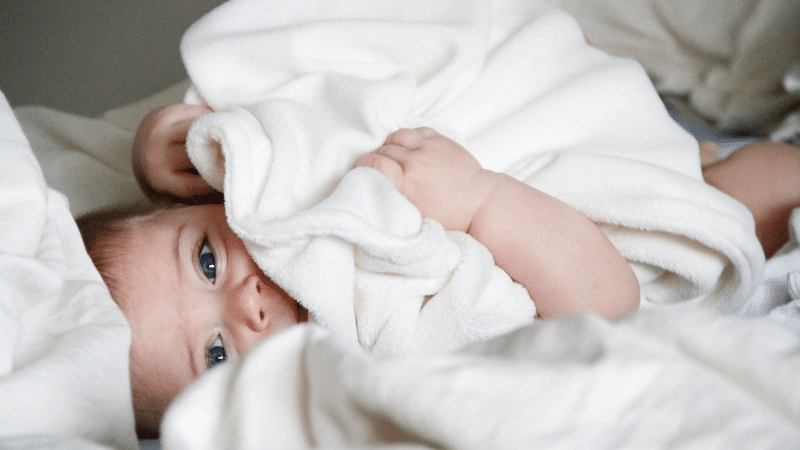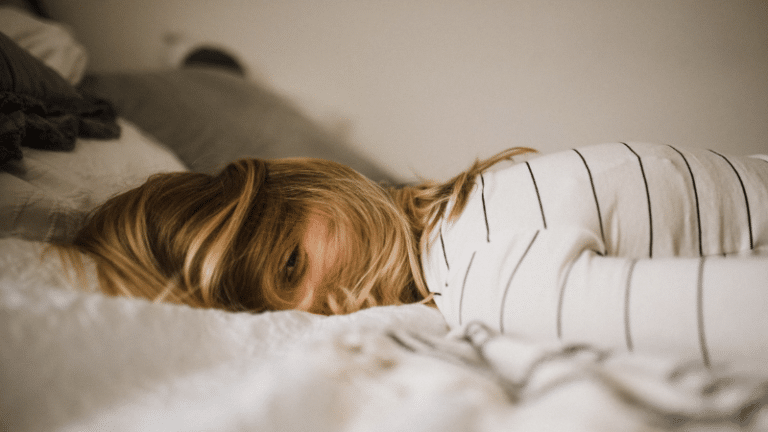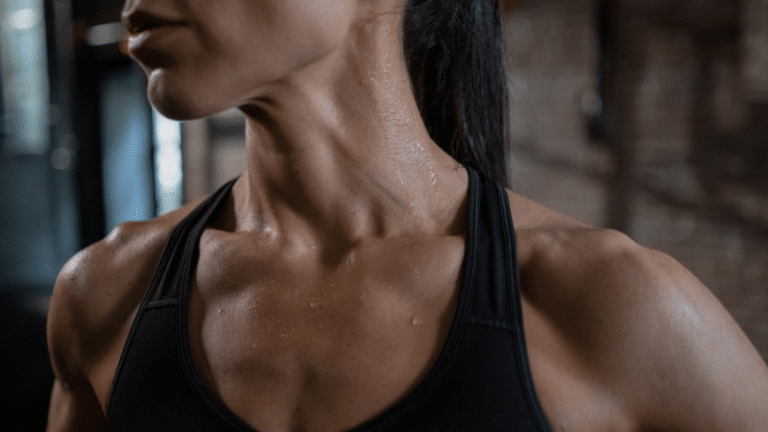How to Get Rid of Baby Acne in 2024 (Complete Guide)

Baby acne is a condition characterized by small red or white bumps on the body, face, or other areas of skin. In this brief guide on how to get rid of baby acne, we’ll shed light on what baby acne is, what it looks like, and how to handle it.
Babies and Neonatal Acne
In most cases, acne in babies disappears on its own, usually within a few months. However, if your baby’s acne lingers on much longer, you can take a few steps to get rid of it. Newborns around two to five weeks old may start to develop small pimples on the face or other parts of the body.
Some 30% of newborns experience neonatal acne within this period. However, if your child is older than six weeks and you notice a breakout, you should probably contact a doctor, as you might be dealing with a potentially more serious condition, infantile acne.
The pores in a baby’s skin are still tender and vulnerable to excess sebum, dirt, and other foreign substances. Some baby acne can appear and disappear within days or even hours. So, patience is the key to dealing with it.
Causes of Baby Acne
There are only a few suspected causes of acne on a baby’s face or body. The most likely of all factors is hormone remnants circulating in a baby’s blood.
Hormones
Hormones are the most frequent cause of neonatal acne. These aren’t the baby’s hormones but the mother’s, still circulating in the baby’s blood. Known as maternal hormones, they stimulate the baby’s oil glands to produce more sebum, which ends up clogging pores and causing neonatal acne. It’s not certain that maternal hormones cause baby acne, but credible research suggests this might be the case.
Your baby can get these hormones from the womb or get exposed to gastrointestinal chemicals that cause acne over time when breastfeeding. Of course, this doesn’t mean mothers shouldn’t breastfeed their babies, especially since formula-fed infants are at higher risk of developing a milk allergy.
Abrasive Soaps and Washcloths
Even in adult skin, abrasion is bad for acne—it’s the main cause of acne resulting from friction between the skin and other objects. Abrasion causes acne mechanica, a condition brought on by mechanical factors, as opposed to hormonal or genetic influences.
Newborn acne can also result from these mechanical factors due to chemicals or objects. Using any product on your baby that might be too aggressive for their delicate skin increases the chances of a bacterial infection that may cause acne. This includes soaps and other chemicals.
Products for Adults
A baby’s skin doesn’t reach the first stage of maturity until the age of two. This explains why a baby’s skin can’t maintain proper moisture for its cells until the baby is at least two years old.
Namely, their skin overreacts to external factors that normal skin would otherwise tolerate. These factors may include temperature, wind, sweat, dyes, detergents, etc. This is why you must use only baby-appropriate products and why some of the effective acne remedies for adults, like high-quality vitamin C serum, are not recommended as treatments for baby acne.
So basically, you might be using a product that causes or worsens acne by harming and weakening your baby’s skin. This underscores the need to use only products specifically made to be gentle enough for a baby with acne.
Popping Pimples
When you pop pimples, you push bacteria and pus deeper into the skin. This can spread an infection that leads to more swelling or redness of the skin. You risk leaving permanent scars on a baby’s skin by popping neonatal acne. Acne squeezing can lead to severe cases even in adults, let alone babies whose bodies and skin are more fragile. What’s even more important is that popping a pimple doesn’t guarantee getting rid of it.
Popping one zit can lead to a more painful one developing in its place. It can also spread acne when bacteria infect nearby pores. This is especially important for babies as their skin is particularly vulnerable to such attacks.
How to Treat Baby Acne
If you want to know how to get rid of baby acne, there are a few basic things to learn. The first step to treating baby acne is to avoid anything that might be triggering it, which the earlier sections of this guide touch on. This also includes any actions that might cause conditions similar to acne.
Don’t use products for adults on your baby, even if those products work well for your skin. Also, don’t pop their acne or bumps, and keep them clean using proper baby-care products. Below are some actions you can take to heal your baby’s acne.
Washing With Warm Water
Warm water can help you deal with baby pimples. Namely, washing your baby’s face with warm water is similar to how you’d get rid of chest acne with warm compresses. This process helps open up pores and draw out bacteria and pus. Gently pat your baby’s skin when drying it.
Breast Milk Remedy
Using breast milk topically to treat baby acne is a method used by many people worldwide. There’s scarcely any scientific proof that breast milk works against neonatal acne, but the widespread acceptance of this method suggests it might be effective. Breast milk has antibacterial properties that can help clear acne caused by bacteria clogging the pores.
The acne will likely disappear if you use breastmilk and wash your baby with warm water. You can either apply the breast milk with cotton or a (very) clean finger. Breast milk is gentle on the skin, so you can do this several times a day.
Consult Your Baby’s Doctor
The best baby acne treatment measure is to get professional medical help. This is advised if you notice any of the more serious symptoms or if baby acne lingers for more than four months. Of course, it’s not necessary to wait four months before consulting a doctor.
Other cases in which to seek medical help include:
- extra red skin
- swelling or discharge
- suspected allergic reactions
- eczema
- skin blisters
- peeling skin
- fever
- irritability
- poor appetite
Conclusion
Baby acne is a common occurrence that you shouldn’t worry too much about, unless your baby’s older than six weeks at onset, it lasts longer than four months, or you suspect an infection. When you aren’t sure whether or not to wait out the outbreak, seeking medical help is usually the best option. The baby acne remedy recommendations we covered in this guide work only for mild acne, while you may need to visit the hospital for the more severe cases.
FAQs
What causes baby acne?
There are three main causes of baby acne—one is internal, and the other two are external. Maternal hormones are the suspected internal cause of baby acne. They are the remnants of mother’s hormones in her baby’s blood. These hormones usually over-stimulate the baby’s oil glands, leading to excess sebum production that clogs the pores. The external causes of baby acne include using aggressive skin products on babies and popping acne.
When does baby acne go away?
Baby acne can go away within hours of appearance or last up to four months. However, it’s not advisable to completely ignore your baby’s acne in the hope that it’ll go away on its own, especially if you feel it’s more than normal acne. With neonatal or infantile acne, seeking early medical attention is the best way to preempt any severe cases that leave your baby with permanent scars or create other health complications.
Is baby acne normal?
Baby acne is normal in the majority of cases. Some 30% of babies develop acne, which comes from hormonal factors. However, some baby acne is more alarming. When you notice inflammation, swelling, extra-red skin, and other symptoms listed above, you should look for medical help.
Can kisses cause baby acne?
Kisses are unlikely to cause baby acne unless there’s an irritant on the mouth (like certain soaps) and it comes into contact with the baby’s skin. So, as long as you make sure that your lips are clean, kissing your child is probably not going to lead to you suddenly having to figure out how to get rid of baby acne.






